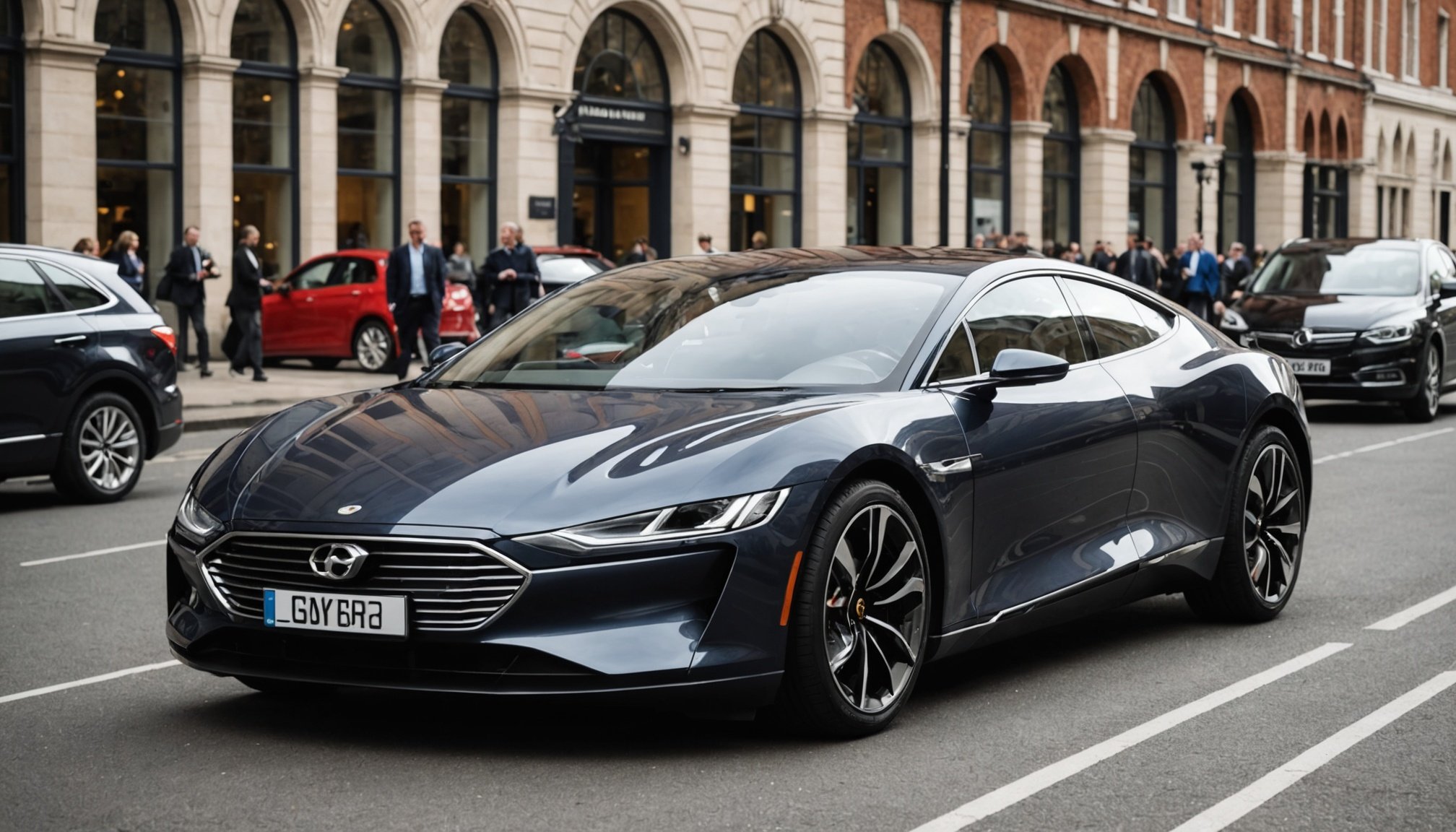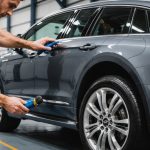The automotive industry in the UK is experiencing a transformative shift. With rapid advancements in technology, changing consumer preferences, and growing environmental consciousness, the landscape of vehicle design and market dynamics is evolving. As manufacturers respond to these changes, it becomes crucial to understand the emerging trends in vehicles that are shaping the future. This article explores these trends, examining how they influence consumer behavior and the driving forces behind the growth of the automotive sector in the UK.
The Rise of Electric Vehicles
Electric vehicles (EVs) are at the forefront of the automotive revolution. With the UK government setting ambitious targets for reducing carbon emissions, the demand for electric vehicles has surged. Consumers are increasingly aware of the environmental impact of their choices, leading to a significant shift towards electric options.
This might interest you : What are the most common misconceptions about hybrid vehicles in the UK?
New technology in battery design has made EVs more appealing. Improved range and shorter charging times have addressed previous concerns about driving distance and convenience. As a result, many consumers are now considering EVs not just as an alternative but as a primary vehicle choice. Moreover, the introduction of government incentives and subsidies has made EVs more affordable for a wider audience.
In terms of design, manufacturers are innovating to create stylish, functional vehicles that appeal to both eco-conscious buyers and traditional car enthusiasts. The aesthetics of electric vehicles are becoming more sophisticated, with sleek lines and modern features that resonate with contemporary consumers. Furthermore, many EVs now come equipped with advanced technology features, including intuitive infotainment systems and connectivity options that enhance the overall driving experience.
Also to see : How can UK drivers benefit from eco-driving techniques?
As the market for EVs continues to expand, manufacturers are also focusing on sustainability in their production processes. This shift not only appeals to environmentally aware consumers but also aligns with broader corporate responsibility goals. The trend towards electric mobility is thus reshaping the automotive industry in profound ways, and it’s evident that this is just the beginning of a much larger transformation.
Increased Demand for Smart Technology
The integration of smart technology in vehicles is rapidly becoming a key selling point in the automotive market. Today’s consumers expect their cars to be equipped with the latest features that enhance safety, convenience, and connectivity. This demand has led to manufacturers investing heavily in technology that offers seamless integration with smartphones and smart home devices.
Features such as advanced driver-assistance systems (ADAS) are becoming standard in many new vehicles. These systems help prevent accidents by providing alerts and automated responses in critical situations, significantly enhancing safety. As consumers become more informed and safety-conscious, the presence of these technologies in a car can heavily influence their purchasing decisions.
Moreover, the rise of connectivity has expanded the role of technology in the driving experience. Consumers can now access real-time data on traffic conditions, vehicle performance, and even health metrics through their car’s interface. This shift towards a more connected driving experience not only boosts convenience but also allows for a more personalized experience tailored to individual preferences.
The market is witnessing a growing trend toward over-the-air updates, which enable manufacturers to enhance vehicle performance and add new features without requiring a visit to a dealership. This capability significantly enhances the consumer experience, as cars can evolve and improve over time, keeping pace with rapid advancements in technology. As we move forward, it’s clear that smart technology will play an increasingly vital role in shaping consumer preferences and expectations within the automotive industry.
Sustainability and Eco-friendly Designs
Sustainability has become a key focus in the automotive industry, with consumers increasingly prioritizing eco-friendly options in their vehicle choices. This trend is driven by a growing awareness of environmental issues and a desire to minimize carbon footprints. As a result, many manufacturers are adopting more sustainable practices in their production processes and vehicle designs.
One of the most notable developments is the use of recycled and sustainable materials in vehicle construction. Manufacturers are looking to reduce waste and energy consumption by sourcing materials that are environmentally friendly. For instance, the use of recycled plastics, metals, and natural fibers is becoming more prevalent in vehicles, offering consumers a more sustainable option without compromising on style or performance.
Furthermore, the push for sustainability influences not only the materials used but also the overall design philosophy of new vehicles. The trend is moving towards designs that optimize fuel efficiency while maintaining performance. Aerodynamic shapes and lightweight structures enhance the vehicle’s efficiency, making it an attractive option for consumers focused on sustainability without sacrificing the driving experience.
This movement towards eco-friendly designs is being echoed in marketing strategies, with manufacturers highlighting their commitment to sustainability as a selling point. Consumers are more likely to support brands that align with their values, and this shift in consumer sentiment is prompting the automotive market to adapt accordingly. As the demand for sustainable vehicles continues to grow, it is clear that the industry must evolve to meet these changing preferences.
Shifting Consumer Preferences and Demographics
Understanding the shifting consumer demographics and preferences is essential for the automotive industry. The traditional car buyer is changing, with younger generations entering the market with different expectations and motivations. Millennials and Gen Z are not just looking for transportation; they are seeking vehicles that offer value, sustainability, and advanced features.
A significant trend among these younger consumers is the preference for leasing over buying. Many see this as a way to access the latest technology without the long-term commitment of ownership. This shift is influencing how manufacturers market their vehicles. They are increasingly highlighting flexible finance options and the benefits of leasing, such as lower monthly payments and the ability to drive a new car every few years.
Moreover, there is a growing preference for urban mobility solutions. As cities become more congested, consumers are looking for compact, efficient vehicles that are easy to navigate. This has led to increased interest in smaller cars, electric scooters, and car-sharing services. Manufacturers are responding by developing more versatile urban vehicles that cater to these needs, including compact EVs that are perfect for city driving.
Additionally, the rise of online sales platforms has transformed how consumers approach vehicle purchasing. The ability to research, compare, and even buy cars online has empowered buyers, allowing them to make more informed decisions. This shift towards digital channels is something that the automotive industry must embrace, ensuring that they engage effectively with a tech-savvy consumer base.
The UK automotive market is undergoing significant changes driven by emerging trends in vehicle design and evolving consumer preferences. As we move further into the future, the focus on electric vehicles, smart technology, sustainability, and shifting demographics will continue to shape the industry.
Manufacturers must remain agile, adapting their strategies to meet the demands of an increasingly informed and discerning public. The growth of the automotive sector will depend on their ability to innovate and respond to the desires of consumers seeking not only efficiency and performance but also sustainability and smart features.
As consumers embrace these changes, the potential for growth in the automotive industry remains robust. By understanding and adapting to these trends, manufacturers can deliver vehicles that resonate with today’s consumers, driving the market forward into an exciting new era.










